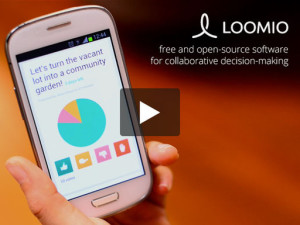
The right to infrastructure: a prototype for open source urbanism
Alberto Corsín Jiménez
Abstract. This paper develops an analytical framework to place the rise of open source urbanism in context, and develops the concept of the ‘right to infrastructure’ as expressive of new ecologies of urban relations that have come into being. It describes, first, a genealogy for open source technology, focusing in particular on how open source urban hardware projects may challenge urban theory. It moves then to describe in detail various dimensions and implications of an open source infrastructural project in Madrid. In all, the paper analyses three challenges that the development of open source urban infrastructures is posing to the institutions of urban governance and property: the evolving shape and composition of urban ecologies; the technical and design challenges brought about by open source urban projects; and the social organisation of the ‘right to infrastructure’ as a political, active voice in urban governance. In the last instance, the right to infrastructure, I shall argue, signals the rise of the ‘prototype’ as an emerging figure for contemporary sociotechnical designs in and for social theory.
Keywords: open source urbanism, infrastructures, urban ecologies, urban commons, right to the city, prototypes
Corsín Jiménez A, 2014, “The right to infrastructure: a prototype for open source urbanism” Environment and Planning D: Society and Space 32(2) 342 – 362
PDF (21 Pages): 2014 Open Source Urbanism Right to Infrastructure







 Weber sees Enlivenment as an upgrade of the deficient categories of Enlightenment thought – a way to move beyond our modern metaphysics of dead matter and acknowledge the deeply creative processes embodied in all living organisms. The framework of Enlivenment that Weber outlines is a promising beginning for all those who stand ready to search for real solutions to the challenges of our future.
Weber sees Enlivenment as an upgrade of the deficient categories of Enlightenment thought – a way to move beyond our modern metaphysics of dead matter and acknowledge the deeply creative processes embodied in all living organisms. The framework of Enlivenment that Weber outlines is a promising beginning for all those who stand ready to search for real solutions to the challenges of our future.